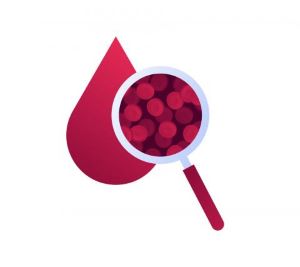
When a parent is told their child has a blood disorder, it’s not an easy thing to hear. A variety of emotions and questions immediately arise, and they can feel fear and become overwhelmed.
How will this impact my child’s life? What kind of treatment is needed? What are the long-term effects? What can my child do or not do? As a parent, did I do something wrong to cause this? Will my child think they did something wrong to cause this? Will this stigmatize my child? Will my child have a “normal” life? How did this happen? Why don’t people understand what I’m going through? Will this take over our life?
While the questions may be plentiful, be assured, there are answers out there, and there is help available to you and your child.
The place to be for care
Phoenix Children’s Center for Cancer & Blood Disorders (CCBD) is the largest pediatric program of its kind in Arizona and provides complete care for children diagnosed with malignancies and blood diseases. Our CCBD team is made up of pediatric specialists, each with a specific area of expertise within the hematology and oncology fields, who are available to provide the kind of care and programs your child needs and deserves, giving you and them healing and peace of mind.
Blood disorders treated at the Phoenix Children’s Center for Cancer and Blood Disorders include, but are not limited to:
- Anemia
- Hemophilia
- Neutropenia
- Thalassemia
- Thrombosis
- Sickle Cell Disease
- Bone Marrow Failure
- Immune Thrombocytopenic Purpura (ITP)
Educate yourself and your child
If your child has been diagnosed with a blood disorder, first it’s important to educate yourself and your child on what a blood disorder is, how it works and what you can do to stay as healthy as possible. Even in the simplest terms, education can help take some of the fear out of the equation and return power to you and your child rather than letting the disorder have power over you.
Blood disorders affect one or more components of the blood and prevent it from doing its job correctly. Depending on the type of blood disorder, it may cause issues such as bleeding, pain, fatigue or inability to resist infection among other things.
A blood disorder that involves the risk of bleeding, is called a bleeding disorder. Bleeding disorders happen when there is a problem with the body’s ability to clot. In this situation, clotting factors (the proteins that help the blood coagulate and stop bleeding) don’t work correctly or are in short supply. These disorders can lead to situations where there is heavy or prolonged bleeding, such as after an injury or trauma. In other cases, bleeding may be spontaneous, or simply begin on its own – specifically in the joints or cause heavy periods, nosebleeds, or bleeding in other parts of the body. An example of a bleeding disorder is hemophilia or von Willebrand disease.
Staying healthy
Depending on the diagnosis, a child with a blood disorder can live to normal life expectancy with the right care and treatment. Your child can live their life like anyone else, striving to live life to the fullest. They just have to manage their lives a little differently than others and take some precautions.
Having a blood disorder, like any other illness, is only part of who you are, it does not have to define who you are.
Here are four tips to help your child stay as healthy as possible:
- Have a “go bag.” A bleed can happen at any time, through an accident at home, during active play at school, while travelling, etc. Have a “go bag” with supplies to manage and treat a bleed when one occurs in your home, in your car and in your child’s backpack (or with the school nurse).
- Have important information readily available. It’s always best to have easy access to your child’s health insurance card, contact information for your child’s hematologist or hemophilia treatment center and an emergency contact list. It is also helpful to have your child wear a medical alert ID badge with relevant information. However, at Phoenix Children’s, we typically provide a card which allows them to get into the emergency room faster.
- Help others “help” you. Teach family and friends what to do to help with treatment in an emergency. Let them know where to find your “go bag” and important contact information.
- Educate others about bleeding or blood disorders. Help educate and inform those who are involved in your child’s life such as teachers, coaches, daycare providers, co-workers, supervisors, etc., on the needs of your child.
Get more information from Phoenix Children’s Center for Cancer and Blood Disorders here.
